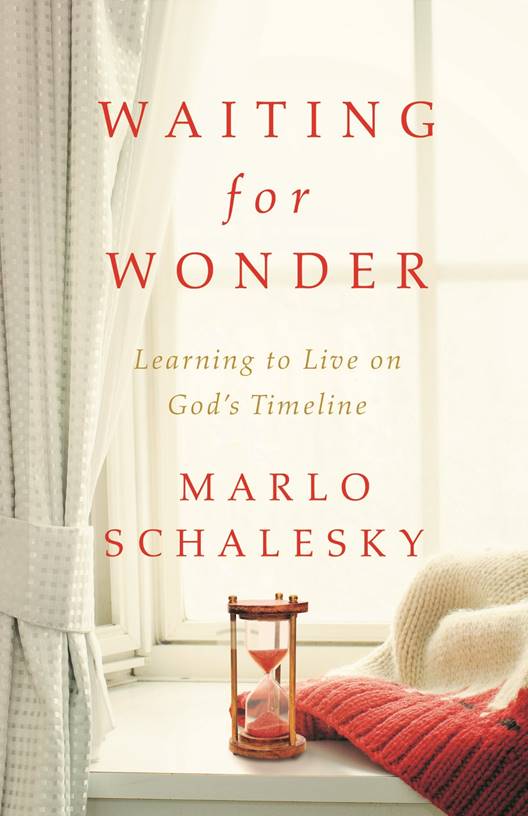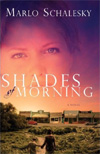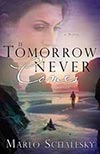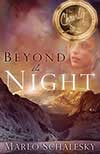Hello Friends!
What do you do when life doesn’t turn out the way you hope and plan? Where is the wonder and mystery, the beauty and breathtaking vividness of God then? I’ve been asking myself that lately as I come to grips with all the miscarriages I’ve had in this past year, and as I get used to the idea that Bryan and I won’t be having more children as we’d hoped. So, today I’d like to share with you some of my thoughts. This is a little different from the stories I normally share, and a little longer. But I think you’ll find it worth it.
Last Friday night I spoke to a group of wonderful ladies at St. Timothy’s Lutheran Church about this very topic – Living the Life God’s Given You When It’s Not the Life You Dreamed. One of the things I spoke about, something that I’ve been thinking about a lot lately, is the life of Mary, the mother of Jesus.
I’ve been thinking about the wonder she witnessed, and how every bit of her life had to be opposite of her dreams. Both wonder and disappointment. Beauty and sorrow. She touched it. Lived it. Embodied the journey of us all.
Think about it: There she is, engaged, planning on a nice, quiet, happy life. And boom,
up shows an angel. Forget your plans, he says, God’s got different ones. You’re having a baby, and it ain’t gonna be your husband’s. You get to have God’s son. Yea, people are going to believe that. Unwed mother, pregnant. And it’s all God’s fault.
But Mary reacts pretty good to that. “I’m God’s servant,” she says. And then we get that whole prayer praising God in Luke 1:46-55 that we like to read at Christmas time.
So, then she’s 9 months pregnant. And what should happen but a decree – you’ve got to go to Bethlehem. A long trip on the back of a donkey. I’ve been 9 months pregnant, so I can you tell you that there’s no way that a trip like that was a part of Mary’s plans. Yikes!
And worse yet, when they get there, they can’t even get a room. (Side note: We always translate the Greek word as “inn” in our English versions of the Bible, as if there’s some sort of Motel 6 there in Bethlehem. But that word is usually used for a guest room in a relative’s house. So, it could be that Joseph went to his relative’s house there in Bethlehem and found that other relatives were there first and had taken up all the space. I wonder if it was because they had to travel slowly because of Mary’s condition that there was no place for them once they got there?) I also wonder if they were thinking that surely God would provide a room for them, a nice place to have that baby that was supposed to be God’s son. But no. A stable. And not one of those cute, clean little “stables” like we have in our nativities at Christmas. Think poop, flies, and stink.
Then, finally, the magi come. Now, that’s more like it. Gold. Frankincense . Myrrh. Gifts fit for a king. At last! Except that no sooner do they leave than the soldiers come. Soldiers killing baby boys. Talk about a nightmare. And Mary and Joseph have to run off to Egypt, a foreign country, where they’re all alone.
Eventually, of course, they come back to Israel. And we get one story in the Bible about Jesus as a youth. One, single story. And what’s he doing? Yep, giving his mom grief. At twelve, he stays behind in Jerusalem, and gives his mom the scare of her life. That sure wasn’t a dream come true for her.
And if that’s not enough, he grows up. Now, if I was the mom of God’s son, I’d be dreaming of some big stuff. In fact, you can see some of Mary’s plans in her original prayer –
--bringing down rulers, maybe she’s thinking of Rome,
--helping the humble,
--bringing abundance, food, to the hungry,
--bringing glory to Israel like they once had.
But instead, her son is wandering about homeless riling everybody up. So much so that she and some of Jesus’ brothers have to go to talk some sense into him. And when she gets there, does Jesus say, “Mom, great to see you! Come on in, sit by me.” Noooo. He says, “Who are mother and my brothers… These are my mother and my brothers,” as he points to other people around him – not to her. Jesus’ public ministry certainly wasn’t Mary’s dream come true.
And then, of course, comes the worst of all. Can you imagine it? Watching your first born son arrested, beaten, spat upon, and then nailed to a cross to die. Because where was Mary then? She was at the foot of the cross. Can you imagine standing there as the blood drips, and his anguished cries echo in your ears. Your son. The son you love. I can imagine nothing worse. Nothing more gut-wrenching and horrific. That was never, ever, ever in Mary’s plans. That was the greatest nightmare come true of all time.
AND YET… and here’s the most marvelous point of all. It is in that horrific moment, in that moment that encapsulates the very epitome of what it means for plans and hopes to go awry, to die – in that moment we find the most incredible, wondrous, breathtaking act of God of all time. It is the moment of redemption, of glory, of splendor, of the answer to all the prayers and hopes from the beginning of time until now. It is at that moment that we find the salvation of mankind.
There, at the precise moment when all Mary’s hopes died. When all her plans came to nothing. That was the moment of answer. That was the moment when truly the poor were provided for, a ruler of evil was overthrown, and mercy was given, just as she prayed all those years before. It was the moment of glory.
And I think it may always be that way. That there, at the very place where our dreams don’t come true, where our expectations are shattered – that is where God is standing in the greatest power. Those are the moments, the places that change the world, where we find a depth and wonder deeper than we ever dared to dream.
Because, this I know for certain: the life God gives you is not the life you dreamed. It is the Kingdom of Heaven lived through you. It is wondrous. It is incredible. It is unexpected. And it is found at the foot of the cross.
Wednesday, September 26, 2007
Wednesday, September 19, 2007
Surrender ... And Pictures on the Frig
Hi Friends,
One of my favorite songs is Surrender by BarlowGirl. In fact, it’s one of the songs that plays on that little music player on the front page of my website (http://www.marloschalesky.com/). I was listening to the song yesterday and thinking about the idea of surrendering our lives to God. I was reminded of a thought I’d had a few years ago. It happened like this:
I’d heard it a dozen times before. “Give your life to God! Surrender!” And that Sunday, the message our pastor proclaimed was no different. I leaned back and thought about how glad I was that I had given myself to God and how I wanted to make my life a gift to him every day. But then, something new struck me, something I hadn’t dwelt on before.
I thought about the songs we’d sung earlier – songs about the grandness of the God of the universe, about His majesty, His holiness, the wonder of His presence. And as I thought about the glory of God, the value of my one, puny, rather unimpressive life seemed like a poor gift indeed. After all, I was no Billy Graham, no President of the United States, no great mover-and-shaker of the world around me. I was just plain ol’ me, with no extraordinary accomplishments, no fancy resume, nothing to make my life seem a worthy gift to so great a God. Did God really care if I gave my life to him? Did it really matter after all?
My thoughts troubled me as the service ended and I slipped out to pick up my then-nearly-three-year-old daughter from Sunday School. A dozen small bodies wiggled from the classroom and darted down the hall toward me. Among them was Bethany. As soon as she saw me, she let out a squeal and waved a piece of yellow construction paper over her head.
“Mommy, mommy, look!” she cried as she hurled herself toward me.
The other kids rushed past like a river at flood-stage. Bethany crashed into my legs, then hugged me around the knees. A moment later, she giggled and shoved the construction paper into my hands. “For you, Mommy. My make picture for you.”
She smiled up at me with wide eyes framed by curly, wheat-colored hair, and my heart melted.
I knelt beside her. “For me?”
“It’s a present.”
I held her close and looked down at the construction paper. Red and blue crayon marks formed lopsided circles that listed off to the right bottom corner of the page. A black smear marred the upper corner, and in the middle a rough outline of Bethany’s handprint started off well, then dropped off to a long squiggle at the pinkie finger.
I pulled Bethany closer and kissed her on the forehead. “I love it!” I proclaimed. And I did. I really did. It was no Monet (Picasso maybe), but to me, it was every bit as precious.
Later that day, I put the picture in the center of the refrigerator door where I could see it every day. I stood back, smiled, then stepped forward to adjust it just right.
I knew, of course, that if someone else were to find the picture lying on the ground, they would think it was just trash. They wouldn’t see it like I did. They would see a piece of cheap paper with crayon scribbles and pen marks. But to me, it was a treasure. I loved the squiggled outline of her little hand. I adored the awkward circles. And one day, when a new picture came to replace the yellow construction paper on the frig, I knew I would put this one away in my “special things” box, with a tiny date written on the back. Then, in years to come, I’d pull it out, and look at it, and remember.
It was then, as I stood there and admired the picture on the frig that I understood at last what it means to God when I make my life a gift to him. He doesn’t care if I’m a bit off-center, with lopsided circles that droop to one side. He doesn’t care if I’ve never done anything that seems very important. What matters is that I give Him my life as an offering of love. What matters is that God loves me so much that my life, even mine, is precious beyond measure.
My life may never be a Monet, but God still loves to hang my picture on the frig.
One of my favorite songs is Surrender by BarlowGirl. In fact, it’s one of the songs that plays on that little music player on the front page of my website (http://www.marloschalesky.com/). I was listening to the song yesterday and thinking about the idea of surrendering our lives to God. I was reminded of a thought I’d had a few years ago. It happened like this:
I’d heard it a dozen times before. “Give your life to God! Surrender!” And that Sunday, the message our pastor proclaimed was no different. I leaned back and thought about how glad I was that I had given myself to God and how I wanted to make my life a gift to him every day. But then, something new struck me, something I hadn’t dwelt on before.
I thought about the songs we’d sung earlier – songs about the grandness of the God of the universe, about His majesty, His holiness, the wonder of His presence. And as I thought about the glory of God, the value of my one, puny, rather unimpressive life seemed like a poor gift indeed. After all, I was no Billy Graham, no President of the United States, no great mover-and-shaker of the world around me. I was just plain ol’ me, with no extraordinary accomplishments, no fancy resume, nothing to make my life seem a worthy gift to so great a God. Did God really care if I gave my life to him? Did it really matter after all?
My thoughts troubled me as the service ended and I slipped out to pick up my then-nearly-three-year-old daughter from Sunday School. A dozen small bodies wiggled from the classroom and darted down the hall toward me. Among them was Bethany. As soon as she saw me, she let out a squeal and waved a piece of yellow construction paper over her head.
“Mommy, mommy, look!” she cried as she hurled herself toward me.
The other kids rushed past like a river at flood-stage. Bethany crashed into my legs, then hugged me around the knees. A moment later, she giggled and shoved the construction paper into my hands. “For you, Mommy. My make picture for you.”
She smiled up at me with wide eyes framed by curly, wheat-colored hair, and my heart melted.
I knelt beside her. “For me?”
“It’s a present.”
I held her close and looked down at the construction paper. Red and blue crayon marks formed lopsided circles that listed off to the right bottom corner of the page. A black smear marred the upper corner, and in the middle a rough outline of Bethany’s handprint started off well, then dropped off to a long squiggle at the pinkie finger.
I pulled Bethany closer and kissed her on the forehead. “I love it!” I proclaimed. And I did. I really did. It was no Monet (Picasso maybe), but to me, it was every bit as precious.
Later that day, I put the picture in the center of the refrigerator door where I could see it every day. I stood back, smiled, then stepped forward to adjust it just right.
I knew, of course, that if someone else were to find the picture lying on the ground, they would think it was just trash. They wouldn’t see it like I did. They would see a piece of cheap paper with crayon scribbles and pen marks. But to me, it was a treasure. I loved the squiggled outline of her little hand. I adored the awkward circles. And one day, when a new picture came to replace the yellow construction paper on the frig, I knew I would put this one away in my “special things” box, with a tiny date written on the back. Then, in years to come, I’d pull it out, and look at it, and remember.
It was then, as I stood there and admired the picture on the frig that I understood at last what it means to God when I make my life a gift to him. He doesn’t care if I’m a bit off-center, with lopsided circles that droop to one side. He doesn’t care if I’ve never done anything that seems very important. What matters is that I give Him my life as an offering of love. What matters is that God loves me so much that my life, even mine, is precious beyond measure.
My life may never be a Monet, but God still loves to hang my picture on the frig.
Wednesday, September 12, 2007
What a Balloon Taught Me about Psalm 23
Hi Friends!
What’s a balloon got to do with Psalm 23? Everything! Recently, as I was reading the psalm again, and studying it in Hebrew, I remembered a story from my childhood. It happened like this:
To my five-year-old eyes, it was a thing straight from heaven. Beautiful, wondrous, and all mine. I clutched the string in my hand and gazed at the shimmering pink balloon. It was the biggest one I’d ever had – fat with helium and formed in the shape of Mickey Mouse’s head.
And best of all, inside was a second, smaller balloon of purple, my favorite color.
I tugged on the string and watched as the smaller balloon danced inside the big one. A hand touched my shoulder. I looked up into the face of my Grandma.
She smiled. “Don’t let go of the string, Marlo. You don’t want to lose it. We can’t get another one.”
I nodded and rubbed my thumb over my wrist where the string made a loose loop.
For thirty whole minutes that wonderful balloon bobbed over my head. It followed me to the merry-go-round, to the bathroom, to the lunch line. It watched me eat my hot dog, carefully with one hand on the bun and the other on the string.
Then, the unthinkable happened. I was running to see a group of swans swimming across the pond. My hand loosened. The string slipped. The loop around my wrist came undone.
And the balloon was gone.
Breath snatched from my chest as I watched it rushed toward the sky. Further, further. And then it vanished from my sight. My face twisted in a sob. Tears blurred my eyes. “Nooo . . . come back.”
Grandma’s hand again touched my shoulder.
My lips quivered as I spoke. “Bring it back, Grandma. Please.”
She drew me close. “I’m sorry, sweetheart. We can’t get it back.”
There was something so final, so awful, so heartbreaking about those words that they have stayed in my memory all these years later. Even now, I can’t forget that day, nor how it felt to know that my beautiful balloon was gone forever.
That image was renewed for me again not too long ago as I sat in my Hebrew class and listened to the professor talk about Psalm 23. I fiddled with my pencil, half-listening. After all, what could be new about Psalm 23? I’d read it hundreds of times, not only in my Bible, but on plaques and cards and calendars and a dozen other trinkets meant to sooth and comfort.
The professor came to verse 3. I glanced at it in the Hebrew, and then in the English of my NIV translation. He restores my soul.
“Look closely at the form of the verb there,” the professor said.
I looked.
“You see how it really means that he brings back my soul.”
So what? I doodled on the edge of my notes and yawned.
The professor paused. Then, he told a story. He told about a day when his son lost a balloon.
I stopped doodling.
He told about the look on the boy’s face. About how the balloon floated up and up and up in the air and no one could bring it back.
I stopped yawning.
He said the verse again. “He brings back my soul.”
I stopped fiddling with my pencil.
He wrote the verb on the board.
And in that moment, I grasped anew the wonder of Psalm 23. We have lost our souls, to sin, to brokenness, to hurt and pain. We have lost something more precious even than a fat Mickey Mouse balloon. And there’s nothing we can do to get it back.
But God does the impossible. He brings back the balloon. What this world robs, he restores in His love. Who I really am inside, who he created me to be, he brings that back.
I have been hurt. I have chosen poorly. I have sinned. I have slipped away and flown into the sky.
But that is not the end of the story. I am not lost forever in the clouds. God restores my soul. He restores my hope. He brings me back to the place I really belong, to the hand of the One who loves me.
And now, forever, I need no longer to fear.
What’s a balloon got to do with Psalm 23? Everything! Recently, as I was reading the psalm again, and studying it in Hebrew, I remembered a story from my childhood. It happened like this:
To my five-year-old eyes, it was a thing straight from heaven. Beautiful, wondrous, and all mine. I clutched the string in my hand and gazed at the shimmering pink balloon. It was the biggest one I’d ever had – fat with helium and formed in the shape of Mickey Mouse’s head.
And best of all, inside was a second, smaller balloon of purple, my favorite color.
I tugged on the string and watched as the smaller balloon danced inside the big one. A hand touched my shoulder. I looked up into the face of my Grandma.
She smiled. “Don’t let go of the string, Marlo. You don’t want to lose it. We can’t get another one.”
I nodded and rubbed my thumb over my wrist where the string made a loose loop.
For thirty whole minutes that wonderful balloon bobbed over my head. It followed me to the merry-go-round, to the bathroom, to the lunch line. It watched me eat my hot dog, carefully with one hand on the bun and the other on the string.
Then, the unthinkable happened. I was running to see a group of swans swimming across the pond. My hand loosened. The string slipped. The loop around my wrist came undone.
And the balloon was gone.
Breath snatched from my chest as I watched it rushed toward the sky. Further, further. And then it vanished from my sight. My face twisted in a sob. Tears blurred my eyes. “Nooo . . . come back.”
Grandma’s hand again touched my shoulder.
My lips quivered as I spoke. “Bring it back, Grandma. Please.”
She drew me close. “I’m sorry, sweetheart. We can’t get it back.”
There was something so final, so awful, so heartbreaking about those words that they have stayed in my memory all these years later. Even now, I can’t forget that day, nor how it felt to know that my beautiful balloon was gone forever.
That image was renewed for me again not too long ago as I sat in my Hebrew class and listened to the professor talk about Psalm 23. I fiddled with my pencil, half-listening. After all, what could be new about Psalm 23? I’d read it hundreds of times, not only in my Bible, but on plaques and cards and calendars and a dozen other trinkets meant to sooth and comfort.
The professor came to verse 3. I glanced at it in the Hebrew, and then in the English of my NIV translation. He restores my soul.
“Look closely at the form of the verb there,” the professor said.
I looked.
“You see how it really means that he brings back my soul.”
So what? I doodled on the edge of my notes and yawned.
The professor paused. Then, he told a story. He told about a day when his son lost a balloon.
I stopped doodling.
He told about the look on the boy’s face. About how the balloon floated up and up and up in the air and no one could bring it back.
I stopped yawning.
He said the verse again. “He brings back my soul.”
I stopped fiddling with my pencil.
He wrote the verb on the board.
And in that moment, I grasped anew the wonder of Psalm 23. We have lost our souls, to sin, to brokenness, to hurt and pain. We have lost something more precious even than a fat Mickey Mouse balloon. And there’s nothing we can do to get it back.
But God does the impossible. He brings back the balloon. What this world robs, he restores in His love. Who I really am inside, who he created me to be, he brings that back.
I have been hurt. I have chosen poorly. I have sinned. I have slipped away and flown into the sky.
But that is not the end of the story. I am not lost forever in the clouds. God restores my soul. He restores my hope. He brings me back to the place I really belong, to the hand of the One who loves me.
And now, forever, I need no longer to fear.
Wednesday, September 5, 2007
Living as Dust in the Light
Hi Friends,
How do you feel about being dust? How do I feel? As I was cleaning house this past weekend for company, I was thinking about an analogy that I used in my first ever novel, Cry Freedom. It came out of an experience I had years ago. It happened like this . . .
Twilight tossed its gray mantle across the sky and into my newly dusted living room. Shadows crept over the floor, darted into corners, and settled in my mind. Weariness whispered through me. Why did I have to clean, and scrub, and do all this work anyway? I wanted to read a good book, watch a movie, anything else but clean the living room for the Bible study group that would meet there that night. Why did I always have to be the one who did the work?
I threw my cleaning rag onto the coffee table and melted into the recliner. In a moment, the oven timer would buzz, and I would have to leap up and finish preparing the cake for the night’s study snack. Why couldn’t I just be free, free to spend my evening however I wanted? Free to do as I pleased?
A butterfly flitted outside the window. I watched it fly high, then low, before it paused on the rosebush just outside the pane. Eggshell wings fluttered in slow motion. Up and down. Up and down. Then, the creature dropped from the branch and flew into the sky. I followed it with my eyes until it became only a black speck against the clouds. Then, it disappeared.
“Make me like the butterfly, Lord,” I whispered. “I want to be free to fly into the sky, rest on the roses, and drink in the beauty of your creation.” I leaned back my head and stared up at the window that shone from our second story. “Lord, give me wings.”
I waited. And sighed. And shifted in the chair. But I felt just as tired, just as earthbound as ever.
Then, something happened. A shaft of light, as bright as a blade, sliced through the upstairs window and illuminated a path to the floor. And in the light, I saw them – a hundred, a thousand tiny motes of dust. They drifted in the light like bright bits of glimmering gold.
I grabbed my dust rag, and started to stand. But then, I sat back again. I had worked for hours to eradicate the dark bits of dust that marred my furniture, countertops, and television screen. But this dust was different. These tiny motes weren’t dark, weren’t dirty, or ugly. They were beautiful, shining like miniscule stars in the last rays of day.
I dropped my rag, settled back into the chair, and wondered at the splendor of the dust. How could something that was no more than dirt be so beautiful?
I watched a few motes drift lower, out of the shaft of light. They turned gray again, just ugly little specks that floated onto an end table. Only in the light were they lovely. Only there did they shimmer like jewels.
As I sat and pondered the secret of the dust, I remembered a verse from the Psalms: “As a father has compassion on his children, so the LORD has compassion on those who fear him; for he knows how we are formed, he remembers that we are dust.” (Psalm 103:13-14, NIV).
I am dust, I thought. Not some winged butterfly, not a creature that flies wherever it pleases, but dust. Dirty, ugly dust. But in God’s light, I too am transformed. “I am the light of the world,” Jesus said in John 8:12 (NIV). And like the dust, I am only beautiful when I am aloft by his power, illuminated by his love.
As pretty as the butterfly was, the dust that glimmered like sparkling gold was much more beautiful. It stayed, it shone, and as long as it remained in the light, it was stunning.
I had prayed for the ability to order my day as I pleased. But, God offers a freedom that’s more incredible, more real, and more wondrous.
In his light is the freedom to rest in his grace and love. That is the mystery, and the wonder, of true freedom. So now, I no longer pray for wings like the butterfly. Instead, I pray to stay within the light.
How do you feel about being dust? How do I feel? As I was cleaning house this past weekend for company, I was thinking about an analogy that I used in my first ever novel, Cry Freedom. It came out of an experience I had years ago. It happened like this . . .
Twilight tossed its gray mantle across the sky and into my newly dusted living room. Shadows crept over the floor, darted into corners, and settled in my mind. Weariness whispered through me. Why did I have to clean, and scrub, and do all this work anyway? I wanted to read a good book, watch a movie, anything else but clean the living room for the Bible study group that would meet there that night. Why did I always have to be the one who did the work?
I threw my cleaning rag onto the coffee table and melted into the recliner. In a moment, the oven timer would buzz, and I would have to leap up and finish preparing the cake for the night’s study snack. Why couldn’t I just be free, free to spend my evening however I wanted? Free to do as I pleased?
A butterfly flitted outside the window. I watched it fly high, then low, before it paused on the rosebush just outside the pane. Eggshell wings fluttered in slow motion. Up and down. Up and down. Then, the creature dropped from the branch and flew into the sky. I followed it with my eyes until it became only a black speck against the clouds. Then, it disappeared.
“Make me like the butterfly, Lord,” I whispered. “I want to be free to fly into the sky, rest on the roses, and drink in the beauty of your creation.” I leaned back my head and stared up at the window that shone from our second story. “Lord, give me wings.”
I waited. And sighed. And shifted in the chair. But I felt just as tired, just as earthbound as ever.
Then, something happened. A shaft of light, as bright as a blade, sliced through the upstairs window and illuminated a path to the floor. And in the light, I saw them – a hundred, a thousand tiny motes of dust. They drifted in the light like bright bits of glimmering gold.
I grabbed my dust rag, and started to stand. But then, I sat back again. I had worked for hours to eradicate the dark bits of dust that marred my furniture, countertops, and television screen. But this dust was different. These tiny motes weren’t dark, weren’t dirty, or ugly. They were beautiful, shining like miniscule stars in the last rays of day.
I dropped my rag, settled back into the chair, and wondered at the splendor of the dust. How could something that was no more than dirt be so beautiful?
I watched a few motes drift lower, out of the shaft of light. They turned gray again, just ugly little specks that floated onto an end table. Only in the light were they lovely. Only there did they shimmer like jewels.
As I sat and pondered the secret of the dust, I remembered a verse from the Psalms: “As a father has compassion on his children, so the LORD has compassion on those who fear him; for he knows how we are formed, he remembers that we are dust.” (Psalm 103:13-14, NIV).
I am dust, I thought. Not some winged butterfly, not a creature that flies wherever it pleases, but dust. Dirty, ugly dust. But in God’s light, I too am transformed. “I am the light of the world,” Jesus said in John 8:12 (NIV). And like the dust, I am only beautiful when I am aloft by his power, illuminated by his love.
As pretty as the butterfly was, the dust that glimmered like sparkling gold was much more beautiful. It stayed, it shone, and as long as it remained in the light, it was stunning.
I had prayed for the ability to order my day as I pleased. But, God offers a freedom that’s more incredible, more real, and more wondrous.
In his light is the freedom to rest in his grace and love. That is the mystery, and the wonder, of true freedom. So now, I no longer pray for wings like the butterfly. Instead, I pray to stay within the light.
Subscribe to:
Comments (Atom)








